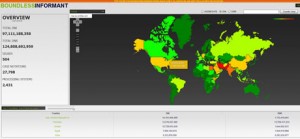“Security is a most seductive thing” and the Single Bus Line that Shut Down Boston
The WSJ has a fascinating story this morning about 3 pages cut from an early draft of the kids book, A Wrinkle in Time. It includes a discussion between the heroine and her father, in which the latter describes the dangers of valuing security over all else. He starts by talking about totalitarian governments, but when Meg asks about their own country, he responds,
“It’s an equally logical outcome of too much prosperity. Or you could put it that it’s the result of too strong a desire for security.”
[snip]
I’ve come to the conclusion,” Mr. Murry said slowly, “that it’s the greatest evil there is. Suppose your great great grandmother, and all those like her, had worried about security? They’d never have gone across the land in flimsy covered wagons. Our country has been greatest when it has been most insecure. This sick longing for security is a dangerous thing, Meg,”
As it happens, immediately after I learned one of the signature American kids book originally compared US paranoia (during the height of the Cold War) with totalitarianism, I read this summary of an interview Juliette Kayyem did with former Boston Police Chief Ed Davis. In addition to confirming that the authorities immediately assumed this was an Al Qaeda attack (which fed some false assumptions about the attack) and providing background to the decision to release pictures of the brothers, Davis explained that then Massachusetts Secretary of Transportation successfully pushed to shut down the entire city because a single bus line crossed close to where Dzhokhar was believed to be hiding.
Davis gets into detail on another major debate: whether to issue a “shelter in place” order while law enforcement tracked down Dzhokhar Tsarnaev. Davis points to Richard Davey, then the state’s secretary of transportation (and now the CEO of the Boston 2024 Partnership) as having particular influence. Authorities were focused on an MBTA bus that passed through the area where they believed Dzhokhar was hiding. They didn’t want Tsarnaev to have access to the entire transit system, but Davey argued that it’s difficult to shut down just that bus route—just one piece of the system. It strands those who expect it to be up and running. Because of that perspective, the debate became more “all or nothing.” Shut nothing down or shut the city down. In the end, Governor Deval Patrick made the call, in part because the city had shut down for a snow storm the week before and, as Davis puts it, “This is at least as dangerous as a snow storm.”
This is craziness! They shut down an entire city rather than shutting down a single bus line (or, better, putting a cop on every bus on that line rather than having hundreds of cops shooting like drunken cowboys a few blocks away in Watertown). And the guy who made the decision is now heading Boston’s Olympics bid.
Madeleine L’Engle was onto something.
Davis also suggests that the FBI admitted knowing the brothers before they now claim to have confirmed that ID.

